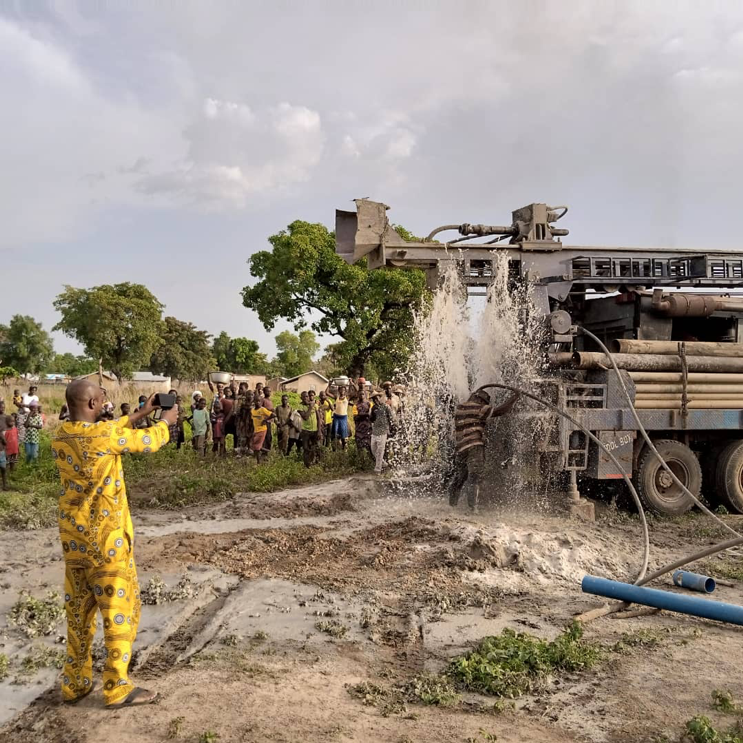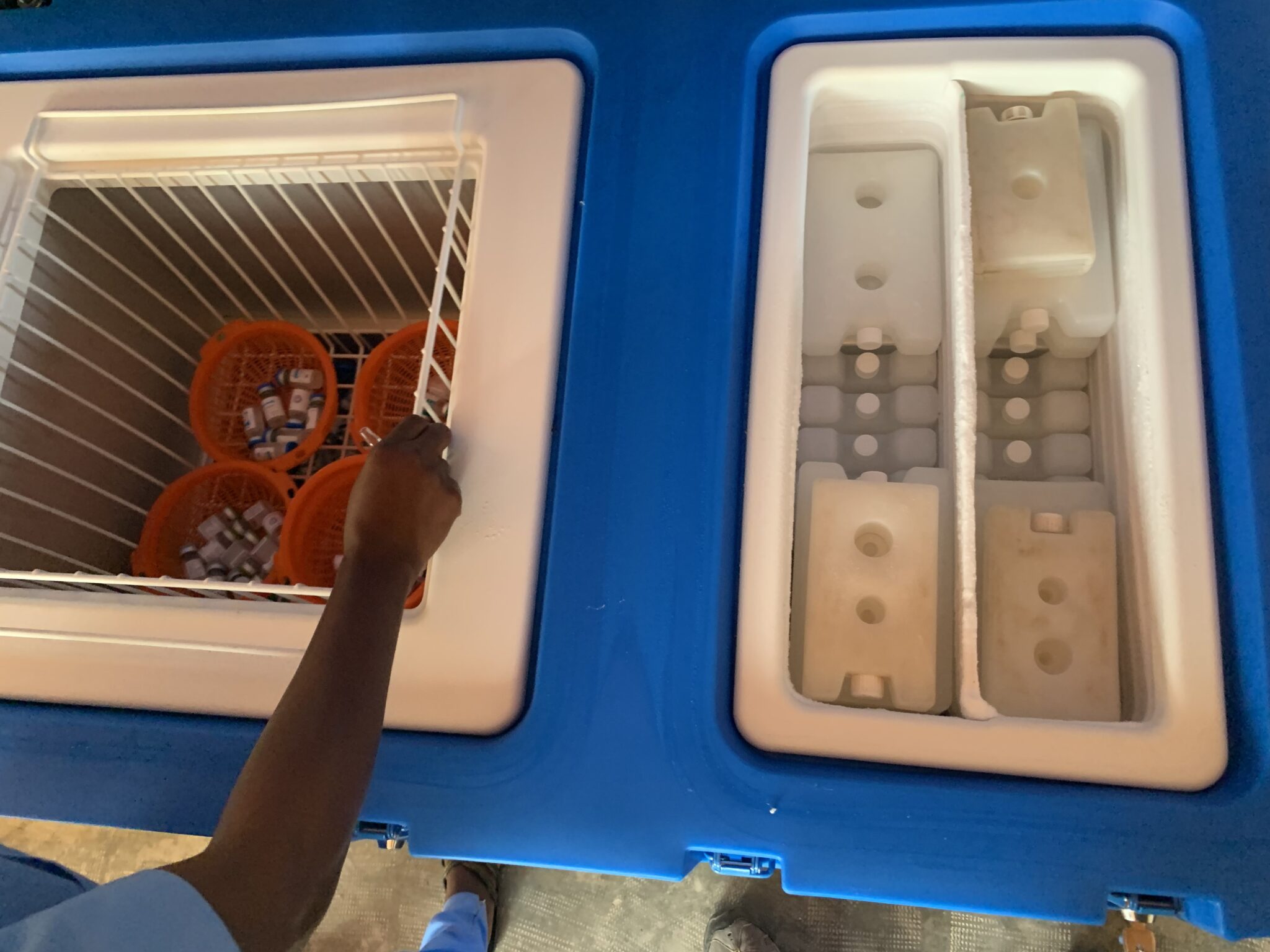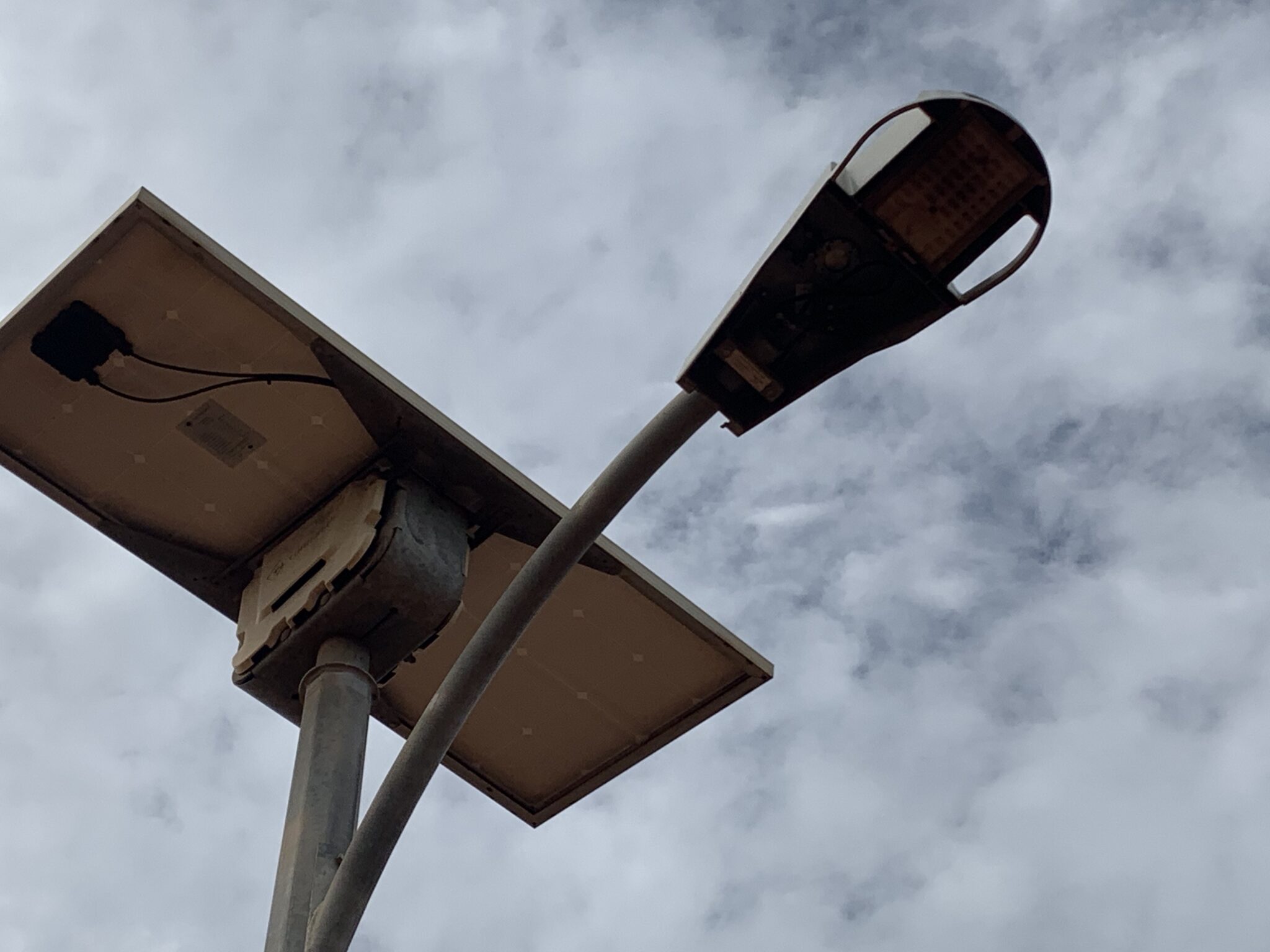Clean Water & Vaccine Access
In Benin, West Africa only 32% of the general population and 9% of rural residents have access to electricity. SELF has worked in Benin since 2006, and in 2020 set out on an ambitious new project in partnership with the Millennium Challenge Corporation.
This work centered on Benin’s rural Kalalé District, with the goal using solar energy to improve access to three primary services: clean water, vaccines, and streetlighting.
Clean Water
The Kalalé District is home to approximately 100,000 people and has historically had very limited access to clean drinking water. When SELF began work there, the region had only 113 water sources that were considered sanitary. Those who couldn’t fetch water from one of these sources on foot often turned to unsanitary sources closer to home, such as streams or open wells.
Building on past work installing 20 sanitary wells, SELF identified 24 additional villages in need of clean water solutions. Engineers got to work designing solar-pumping systems that could deliver ample clean water, even when the sun wasn’t shining. The systems use solar electricity to pump water from an aquifer to an elevated reservoir; water is then stored in the reservoir and delivered by gravity, during the day or even after the sun goes down. Another advantage of this system is that it doesn’t require the use of batteries.
Consultations with the communities and local authorities helped determine precise locations for each system. Extensive testing confirmed the viability of the wells, after which the pumps were installed. Steps were taken to ensure the long-term reliability of these systems, including developing a plan for securing spare parts, and establishing a fee collection system in which water users pay a small, affordable fee for water—a common practice in the region—which will cover maintenance and repairs indefinitely. Fees are collected by water station attendants, with priority for employment given to vulnerable community members who are unable to work agriculture jobs or other common occupations in the area.
The project also advances gender equity through the creation of village water committees, which elevate women in the decision-making process. In addition, women are able to have a stronger presence within their communities, as they no longer spend hours each day collecting water.

Vaccines
While clean water on its own will mitigate common waterborne diseases, SELF knew more could be done to improve health in the region. The next priority was improving vaccine access. Previously, vaccinations weren’t available in the villages, due to the lack of energy required for proper storage. Solar power offered a solution.
SELF worked closely with the Medical Director of the district and with the Ministry of Health and its partners to identify five priority sites to receive solar-powered vaccine refrigerators. These refrigerators are direct drive (i.e., battery free), warrantied, and highly reliable. They also include energy harvester kits, which draw on excess power from the refrigerators to charge phones, ventilate spaces, and light rooms.
All refrigerators are in service, and trainings for local health center teams is complete. The Medical Director will transmit daily monitoring data, as well as data related to vaccines dispensed and cases of waterborne diseases that are treated.

Streetlights
The final component of this work included installing 15 standalone solar streetlights across the five villages receiving vaccine refrigerators. These are designed to light the way to health clinics at night. Exact locations were chosen in collaboration with local authorities. The streetlights were then installed and, finally, switched on.
In addition to creating a safe passage after dark, these lights have also been used by locals as a place to gather and trade in the evening hours. Children have also begun using these spaces to read or study at night, demonstrating the deep and diverse uses for lighting.
In total, this project serves 40,000 people in Kalalé. The work is already impacting the health and wellbeing of local people, and SELF is committed to monitoring results moving forward. SELF regularly receives requests for work in other villages and hopes to serve them in the future.


SELF is a global leader in the fight against energy poverty. Since 1990, we’ve pioneered unique applications for solar energy, powering progress on food security, health care, education, gender equity, and more.
501(c)(3) non-profit organization
EIN: 52-1701564